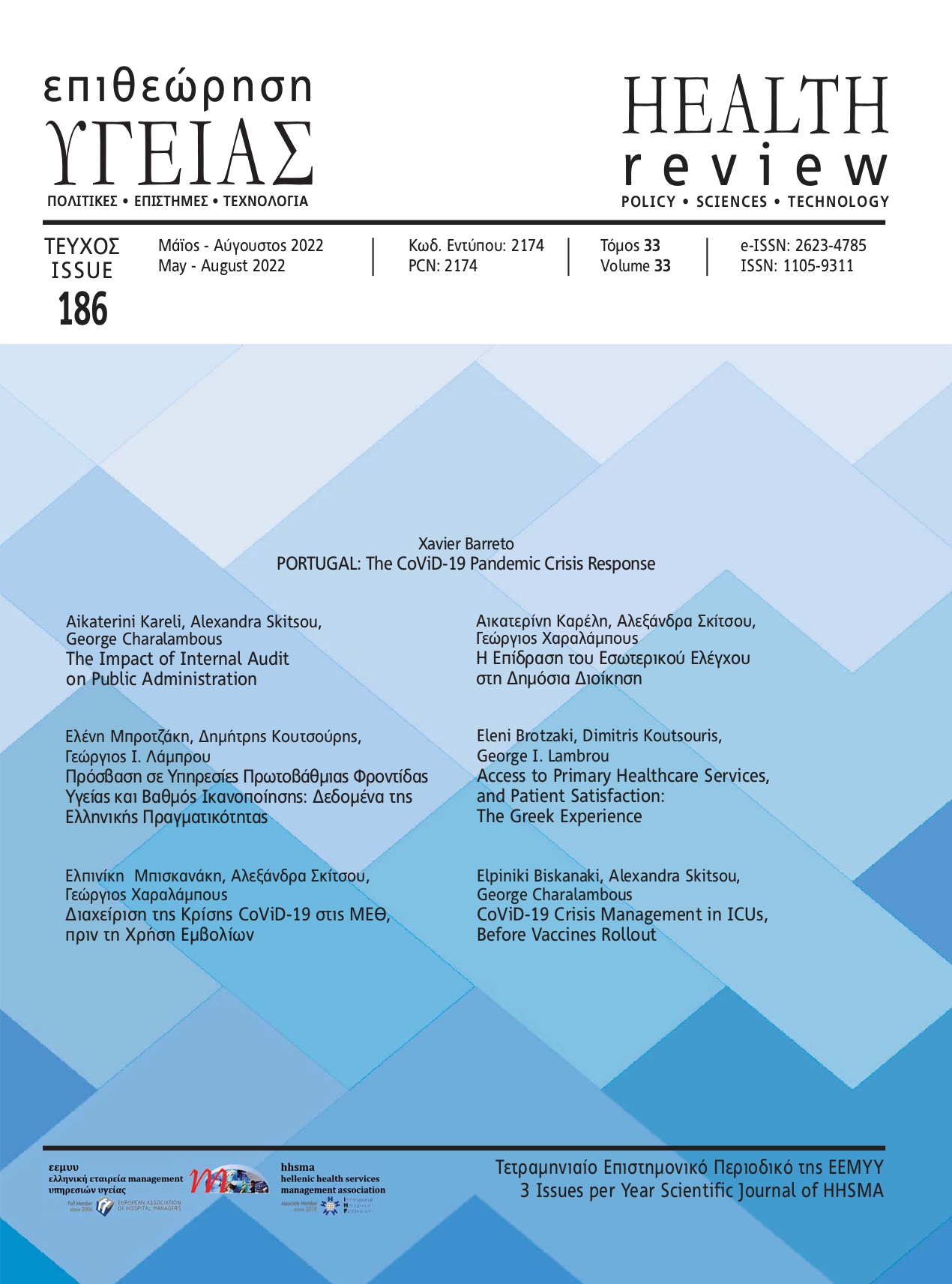Abstract
At the end of 2019, the Chinese health authorities detected a new strain of coronavirus (SARS-CoV-2 ). This new strain seemed to cause a number of cases with serious complications and deaths. As the virus spread, health systems around the world were unprepared for the pandemic that followed. Here we study the coping strategies, in the form of government guidelines and/or scientific associations’ recommendations, for prioritizing patients due to the increased flow of patients in Intensive Care Units (ICUs), before the production and use of the vaccines, during the first year of the pandemic. Moreover, we study the ethical dilemmas of this period. A bibliographic review was conducted in the databases Pubmed, Researchgate, and GoogleScholar, in English, Italian, French, and Greek language using the keywords “COVID -19”, “ethics”/“etica”/“ethique”/“ηθική”,“bioethics”/“bioetica”/“bioethique”/“βιοηθική”,“ICU”/“UTI”/“USI”/ “ΜΕΘ”. The time limit for inclusion in the survey was the end of 2020. We found that for crisis management effectiveness, those involved, both directly and indirectly, were asked to consider options such as (a) the prioritization in ICU’s admission of patients with the best prognosis, (b) the increase in the number of ICU beds, (c) the transfer of patients in need to ICUs in remote areas, where had available beds, and (d) the cessation of life support. Each option, whether chosen to be implemented alone or in combination with other, raises basic ethical dilemmas for health professionals working in the ICU. In conclusion, the adoption of boundary solutions in the provision of health care, where the common denominator is respect for human life, tests or contradicts the moral standards and personal ethics of those responsible for making the decision.
